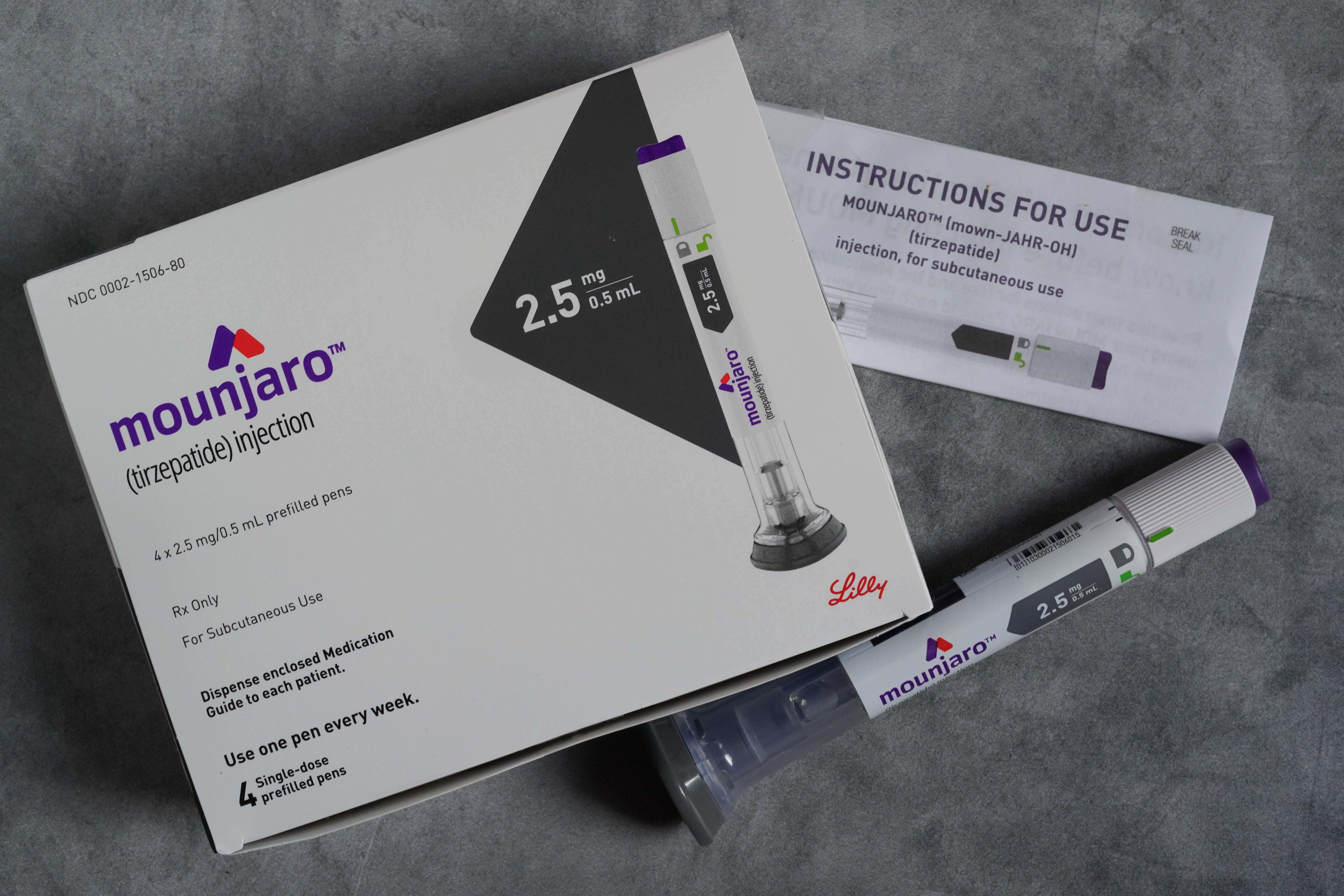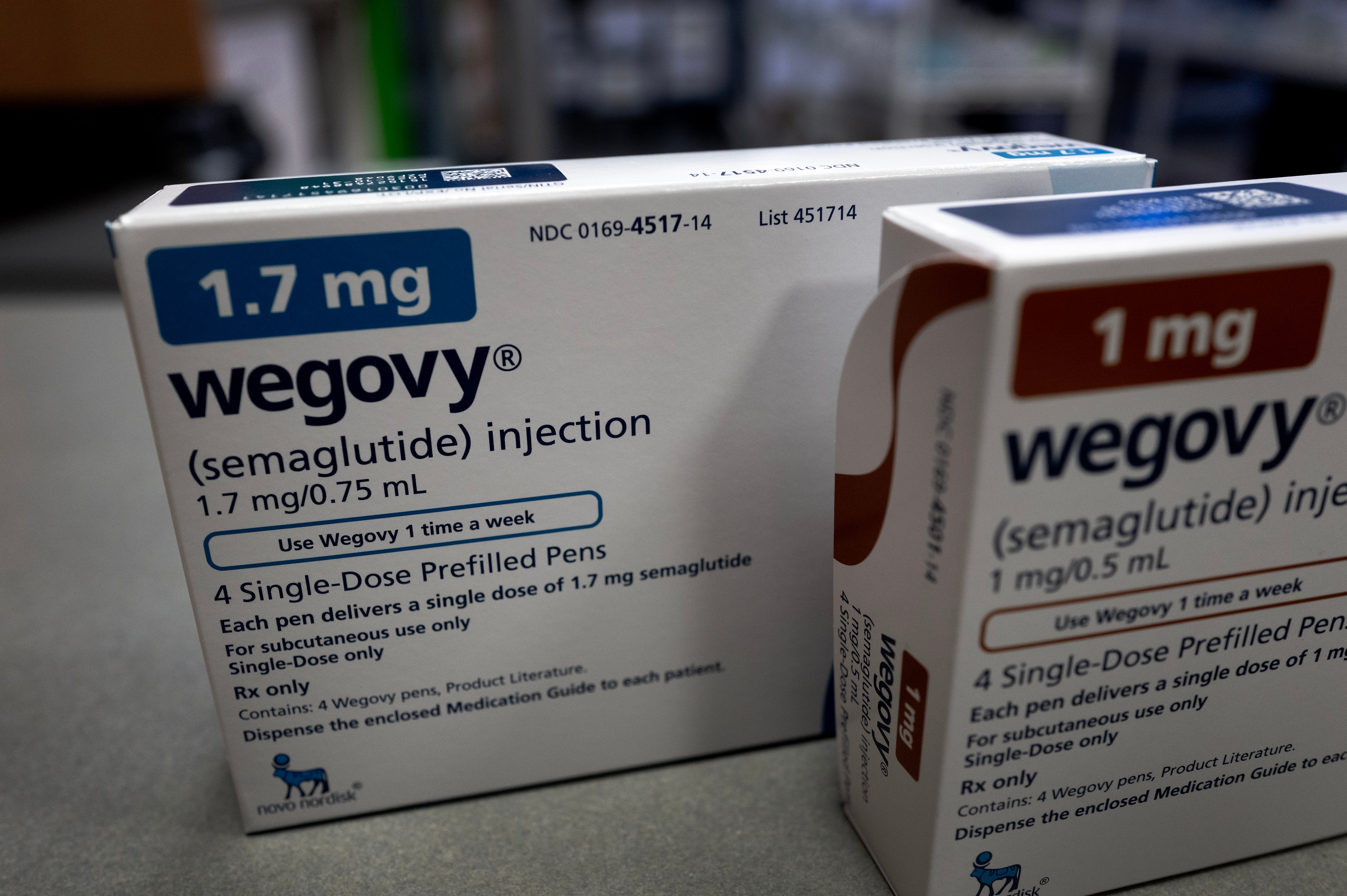Weight-loss jabs have been linked to hundreds of people falling ill with a life-threatening illness and 10 deaths, the UK’s drugs regulator has warned.
The Medicines and Healthcare products Regulatory Agency (MHRA) is investigating after 294 people suffered acute and chronic pancreatitis after taking tirzepatide, the ingredient of Mounjaro, and semaglutide, used in Ozempic and Wegovy.
While none have been proven to be caused directly by the GLP-1 drugs, which are also used to treat diabetes, there are fears that not enough is known about the links, prompting health officials to launch a new study into the harmful side effects.
It comes just days after Mounjaro was made available at GP surgeries across England, while Ozempic and Wegovy can be obtained on the NHS through a weight management referral; however, Mounjaro and Wegovy can be purchased online privately.
It’s believed around 1.5 million people currently take weight-loss jabs – 4 per cent of households in the UK – with their popularity soaring and the NHS’s top doctor, Sir Stephen Powis, saying they could soon become the most commonly used drug.
But experts have voiced caution.

Dr Simon Cork, senior lecturer in physiology at Anglia Ruskin University, said: “The percentages for pancreatitis seen in clinical trials was small, but we know that many people are now purchasing these medications privately. Small percentages in large numbers means an increasing number of people developing these conditions, although they still remain rare.”
However, Dr Cork said it was important to recognise that the risks associated with obesity outweighed those attached to taking the medications.
He added: “For the vast majority of people, these drugs will help with weight loss and are overwhelmingly safe. For a small number of people, significant side effects will occur, and it’s important to ensure that people are being monitored by their healthcare professionals.”
Among those who could have suffered a side effect of Mounjaro is Julie Bishop, 55, who was diagnosed with acute pancreatitis after taking the drug to lose weight. Although it hasn’t been proven that the drug caused the condition, she has called on users to understand the risks involved.
She told The Independent: “I know a lot of people who take it, so I wasn’t initially concerned over using it. I think it’d help if it was explained to people how important their organs, such as the pancreas, are to the body, and the damage a side effect can really cause.
.jpeg)
“I’d be tempted to go back on it, but only through the NHS. I think these drugs should only really be coming to the public through the NHS, potentially by paying for it, because of the risks involved.”
The MHRA’s findings come from medical reports of adverse incidents after patients took GLP-1 medicines. While the use of weight-loss jabs may have been coincidental to an illness or death rather than responsible for it, the voluntary process of the records could also mean the issue is underreported.
The figures also revealed that there were 116 reported cases of acute and chronic pancreatitis linked to liraglutide, one of which was fatal, and 101 reported cases linked to exenatide, three of which were fatal. Five deaths were linked to tirzepatide and one to semaglutide.
There were also 52 reported cases of acute and chronic pancreatitis linked to dulaglutide and 11 to lixisenatide. It means that a total of 10 deaths were linked to the GLP-1 medicines.

As a result, the MHRA is launching a study of those with pancreatitis linked to GLP-1 drugs, to find out if it may be influenced by genetic make-up. It is calling on people to flag any side effects through a Yellow Card Biobank project, run alongside Genomics England.
Dr Alison Cave, MHRA’s chief safety officer, said: “Evidence shows that almost a third of side effects to medicines could be prevented with the introduction of genetic testing. It is predicted that adverse drug reactions could cost the NHS more than £2.2bn a year in hospital stays alone.
“Information from the Yellow Card Biobank will help us to better predict those most at risk of adverse reactions – enabling patients across the UK to receive the safest medicine for them, based on their genetic make-up.”
Last year, a research team from the University of British Columbia in Canada found that those using weight-loss jabs could increase the risk of “severe gastrointestinal problems”, including inflammation of the pancreas.
Author Mohit Sodhi said that although the events were rare, the adverse side effects “must be considered by patients thinking about using them for weight loss”.
The National Institute for Health and Care Excellence lists pancreatitis as a possible side effect of Mounjaro, which it recommends the NHS use for managing obesity in patients who also go on a reduced-calorie diet alongside increased physical activity.
A spokesperson for Lilly, which manufactures Mounjaro, told The Independent that patient safety was its top priority and said it actively monitored and reported safety information on its medicines.
They said that adverse incidents after taking drugs could be caused by other factors, including pre-existing conditions.
They added: “The Mounjaro patient information leaflet warns that inflamed pancreas (acute pancreatitis) is an uncommon side effect (which may affect up to 1 in 100 people). It also advises patients to talk to their doctor or other healthcare professional before using Mounjaro if they have ever had pancreatitis.
“We encourage patients to consult their doctor or other healthcare professional regarding any side effects they may be experiencing and to ensure that they are getting genuine Lilly medicine.”


